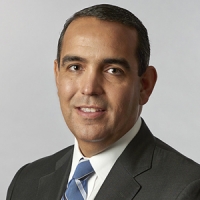I am buying a property in Miami, Florida and I intend to live there with my family. I have had a tourist visa for 10 years, but would like to get the EB-5 permanent residence visa. We have children who are 15 and 12 years old. My wife and I will be retired. Can we somehow use this property to apply for the EB-5 visa? Will being retired have any affect on our EB-5 eligibility?
Answers

Steffanie J Lewis
EB-5 Immigration attorneysRetirement, as such, will have no impact on your EB-5 eligibility provided you can show income to support yourselves after you immigrate to the United States. If the equity in your property is sufficient to borrow against, your Florida property can be the source of funds to invest in an EB-5 new enterprise. Simply owning the property will not satisfy eligibility. However, you can use the property as your source of fund so long as you can provide the lawful source of fund with which you purchase this property.

J Bruce Weinman
EB-5 Immigration attorneysOwning and operating a personal residence is expressly excluded from the definition of "commercial enterprise" in the regulations. Being retired does not preclude you from attaining permanent residence through the EB-5 program.

Ed Beshara
EB-5 Immigration attorneysYour personal investment funds can be derived from the lawful ownership of your property. An investment in an EB-5 regional center project can be passive as far as your management role. To apply for an EB-5 project, you do not have to be currently working and you can be retired to apply.

Lei Jiang
EB-5 Immigration attorneysBeing retired will not affect your EB-5 application, but your plan of buying a property as the vehicle for an EB-5 application may not work. Remember you need to generate 10 jobs.

Michael A Harris, Esq
EB-5 Immigration attorneysUsing a property that you will reside in will generally not qualify. This is because simply buying real estate without commercial operations and job creation is considered a passive investment.

Robert Lee
EB-5 Immigration attorneysYou will not be able to use the residential property purchase for your EB-5 petition. Your retirement will have no bearing on your eligibility as long as you have a stable portfolio of assets.

John J Downey
EB-5 Immigration attorneysBuying a home will not qualify under EB-5; retirement has no effect on an EB-5 investment.

Sara Wang
EB-5 Immigration attorneysYour status as a retiree will not affect your EB-5 eligibility, as long as you can show that you have the means to support yourself and that your total asset complies with the securities requirement for you as an investor. You can use the U.S. property as a collateral and take out a loan to use as your EB-5 investment; this is your only way to "use" this property short of selling it. However, then you will have to demonstrate the source of your fund for the property purchase and the source of your future fund for repayment of the said loan. You may not simply use the fact that you have purchased a house here in the United States as a qualification for an EB-5 investment.

Oliver Huiyue Qiu
EB-5 Immigration attorneysNot entirely sure about what you mean by retirement. If that means you will not actively be involved in managing the properties, you could run afoul of EB-5 rules that require active participation to a certain degree. If you plan to do that, careful planning of the corporate structure may be necessary to shield you from such violation. Buying real estate properties, be it residential or commercial, by itself does not qualify for the EB-5 program. This is because it lacks the feature of "at-risk."

Dale Schwartz
EB-5 Immigration attorneysRetirement does not affect an EB-5 application. But you cannot use a personal residence as your investment. It has to be in a new commercial enterprise.

Kyle Barella
EB-5 Immigration attorneysA residential property does not qualify for an EB-5 visa. However, you could certainly find an eligible passive investment to qualify and obtain permanent residency. Being retired will not have an impact on your investment eligibility. That is perfectly acceptable.

Fredrick W Voigtmann
EB-5 Immigration attorneysNo; EB-5 is an employment-creation immigrant visa category that requires an active, for-profit business and an at risk investment in a new commercial enterprise. Buying property does not qualify for EB-5 classification.

Stephen Berman
EB-5 Immigration attorneysThe EB-5 program requires you to invest in a business that creates 10 new jobs. Owning property, by itself, does not meet that requirement.

Enrique Gonzalez
EB-5 Immigration attorneysQuestion: Can we somehow use this property to apply for the EB-5 visa? Response: No. Question: Will being retired have any affect on our EB-5 eligibility? Response: No.

Jinhee Wilde
EB-5 Immigration attorneysThe fact that you are retired will not be an issue as long as you meet other EB-5 eligibility. However, just buying a property to live on is not an active EB-5 investment that will create 10+ jobs, which is what is required for an EB-5 case. Do not believe some immigration brokers/real estate agents abroad who may be telling you that if you buy a house for $1 million you will get a green card. This is simply not true. Also, the EB-5 process takes 11+ months just to get the I-526 approved before the next step can be taken, whether that is immigrant visa processing or the adjustment of status if you are in the United States under a valid status. Your B1/B2, while it is for 10 years, is only allowing you to stay for six months at a time, and when you enter you are affirming that you do not have an immigrant intent, which is belied by you wanting to do EB-5. If you really wish to pursue the EB-5 route and become a permanent resident, then I would suggest that you work with an experienced EB-5 attorney and take the proper steps to enter with an immigrant visa.

Ian E Scott
EB-5 Immigration attorneysYou must buy or invest in a business to get an EB-5 visa, so buying real estate does not qualify. Also, you must create 10 full-time jobs to get the visa. If you want to retire, you should consider a regional center where the investment is passive.

Salvatore Picataggio
EB-5 Immigration attorneysBeing retired will not be an issue, but the investment must be in a new commercial enterprise: a for-profit business entity that will create 10 jobs. If this Miami property is a commercial property that will require construction and operational jobs, then it may work, but a personal residence will not be eligible.
DISCLAIMER: the information found on this website is intended to be general information; it is not legal or financial advice. Specific legal or financial advice can only be given by a licensed professional with full knowledge of all the facts and circumstances of your particular situation. You should seek consultation with legal, immigration, and financial experts prior to participating in the EB-5 program. Posting a question on this website does not create an attorney-client relationship. All questions you post will be available to the public: do not include confidential information in your question.






